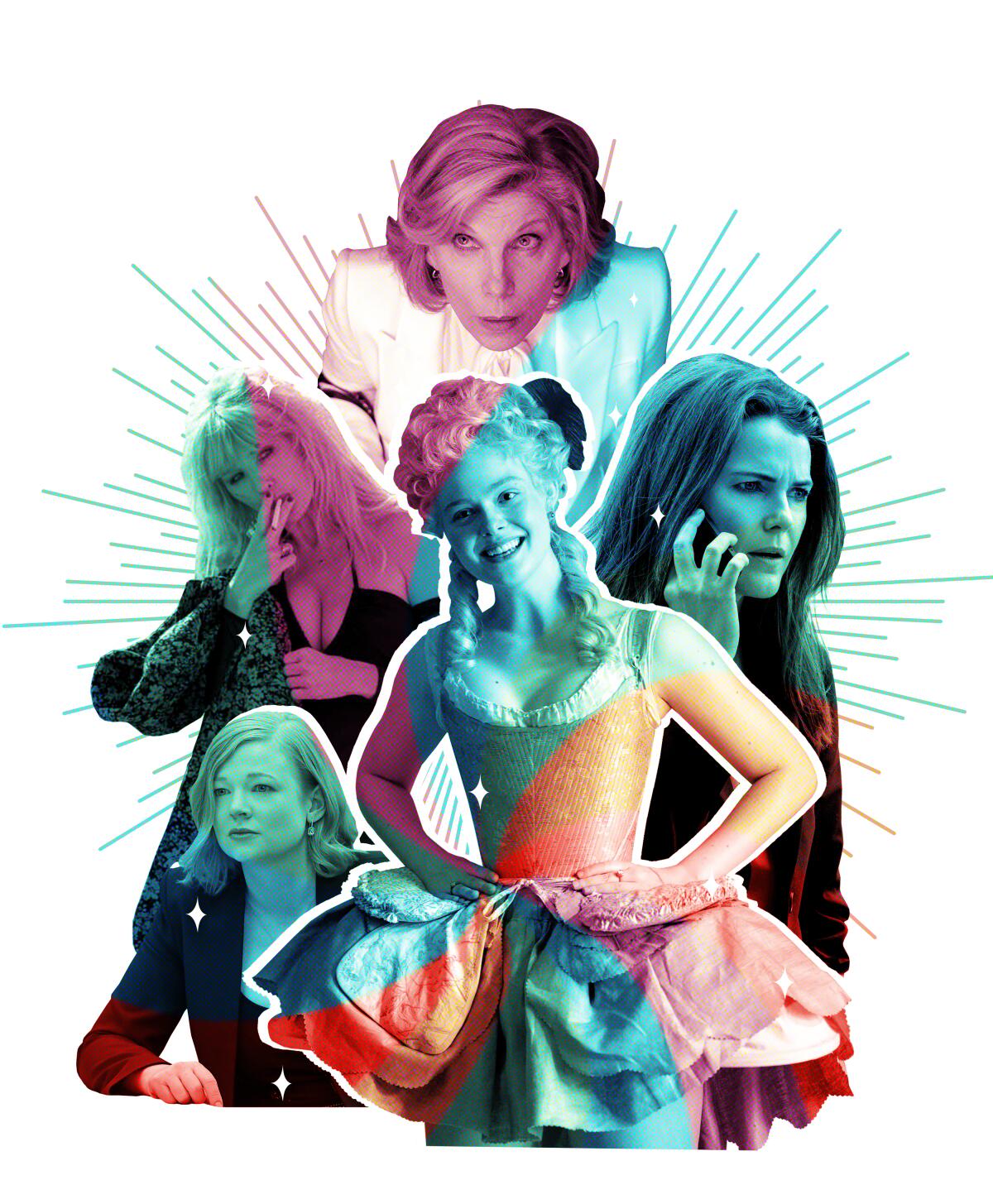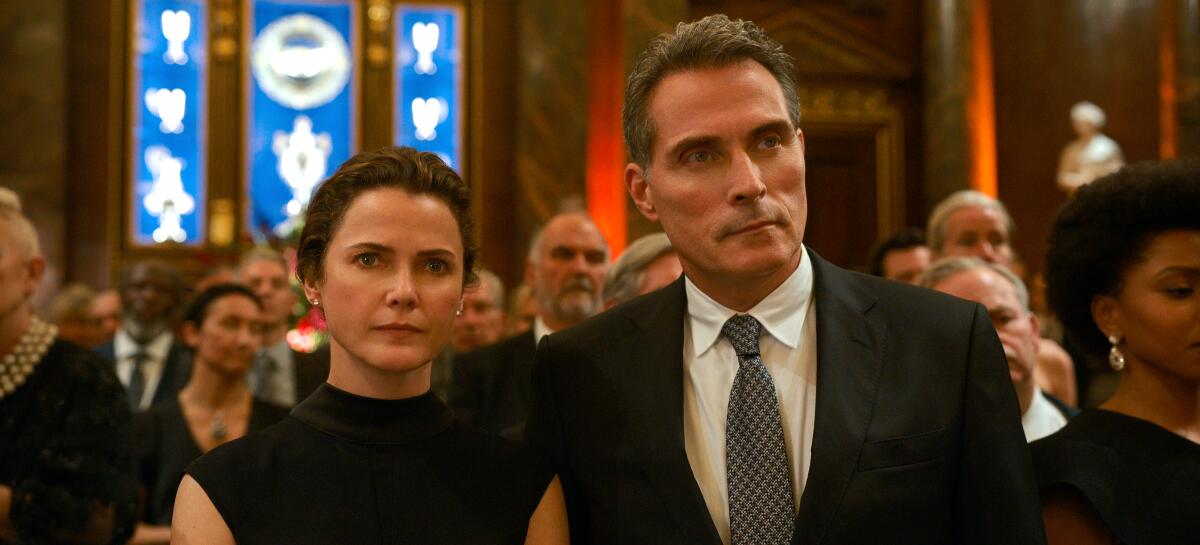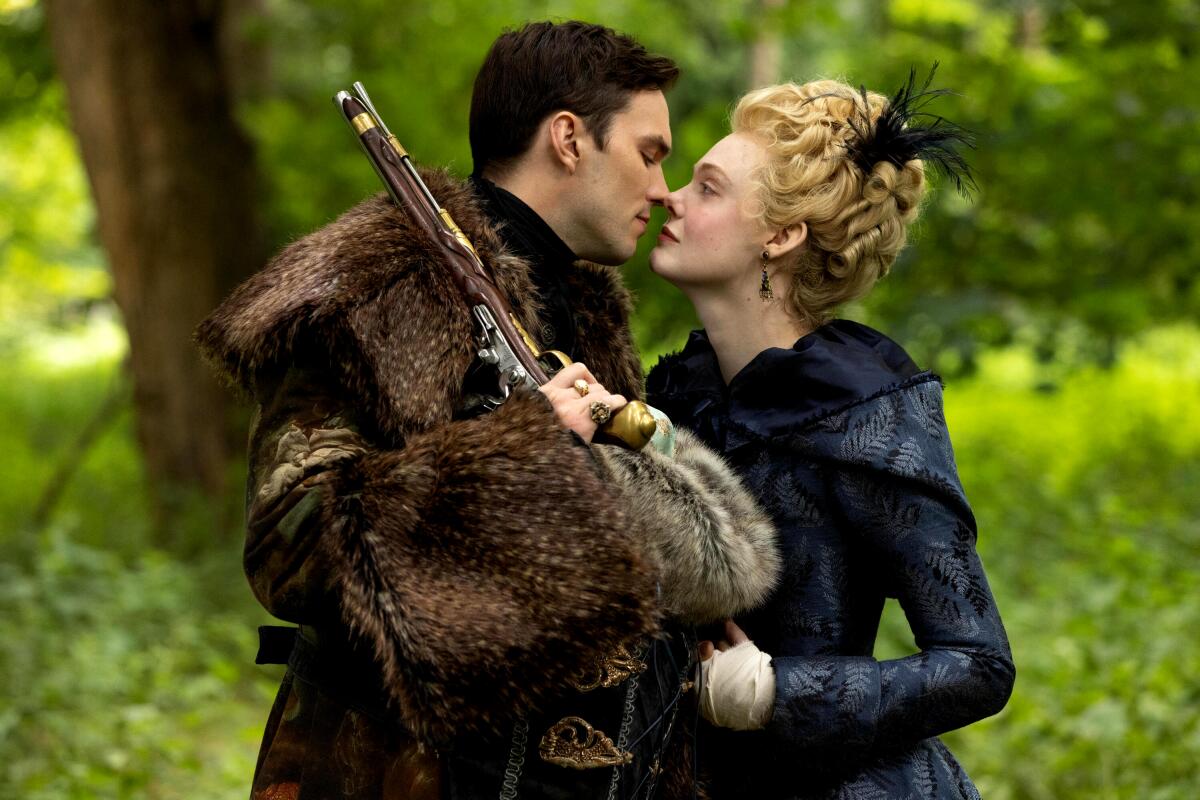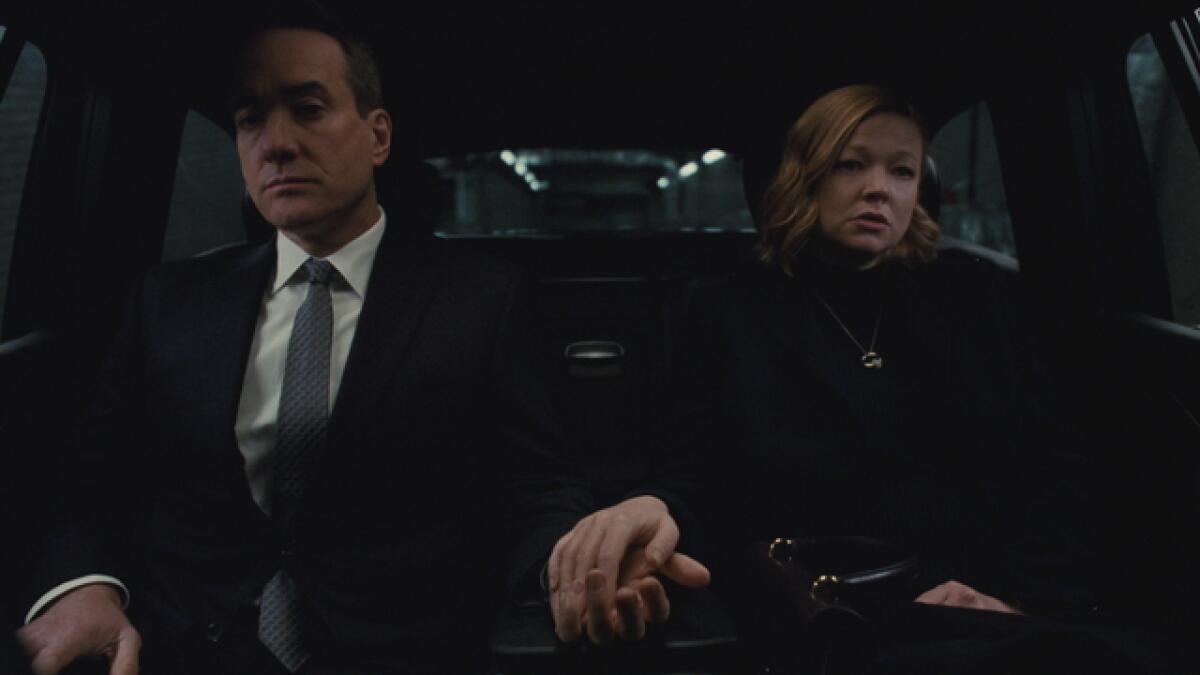How TV’s women are taking the upper hand — for now

)
“Tom Wambsgans finally made me feel something,” says “Succession’s” Shiv Roy to her husband around the midpoint of the show’s final season.
Not the endearing words of a wife to her adoring spouse, to be sure. But perhaps not wholly surprising to those who watched while over four seasons Emmy nominee Sarah Snook’s Shiv treated Tom (co-nominee Matthew Macfadyen) like an accessory — and sometimes an impediment — to her quest for power in a dynasty of backstabbing billionaires.
Call it a long-delayed creative shift in depicting who holds the power, or call it a feminist movement in which the glass ceiling has been cracked open for good; either way, the message coming out of our screens in recent seasons is that women are taking the upper hand in plot — and relationship — dynamics. The trend goes wider and deeper — though seldom darker — than Shiv’s telling Tom she doesn’t love him, calling him an “empty suit” and playing the pain-slinging “bitey” game.
One key to the steady rise of female protagonists after a long-standing dramatic culture of patriarchal types is that these women are simply, as the showbiz folks say, “good in a room,” while the male figures are often a step or two behind.

Perhaps no recent offering features the role switch more entertainingly than Netflix’s recently premiered “The Diplomat,” in which Emmy nominee Keri Russell portrays Katherine Wyler, who must steer impetuous husband Hal (Rufus Sewell) out of her path as ambassador to the UK. Edgy and tough but charismatic, she’s alternately boosted and tripped up by her even more magnetic onetime diplomat husband. “I can’t do my f— job if you are within a hundred-mile radius,” she scolds him, as he adjusts to his role simply as spouse rather than mover and shaker.
The character is awash in pain and violence, but there’s a glimmer of love and tenderness too.
Meanwhile, on “Yellowstone,” arguably the small screen’s most popular if thus far Emmy-bereft drama, Beth Dutton (Kelly Reilly) is perhaps the streaming world’s hardest sock in the jaw. Stolid dad John Dutton (Kevin Costner) is often unhorsed by Beth, whether via her steely logic or her critique of the patriarch’s business model, that is when she’s not busy wrangling ranch foreman Rip (Cole Hauser), who answers to no man but week in and week out cedes power to the woman Beth is.
Contrasting with these straightforward relationship sagas is the gleefully raunchy “The Great,” in which dewy-eyed Elle Fanning, as the titular Catherine the Great of Russia, realizes just minutes into her newly arranged life as empress to Nicholas Hoult’s Peter III — a randy, boundlessly crass, delusional sot — that “I am a prisoner here, married to an idiot.”

Even amid the show’s freewheeling anachronisms and slap-happy vulgarities, Catherine — despite Peter’s warning, “You will never win, you’ll just be in pain” — sets out to stage a palace coup, bringing succor to the brutalized serfs and Peter’s abused army. “If you had shown me an ounce of kindness,” she warns Peter as she gains a homicidal clarity, “I was ready with a heart full of love.” After which she soon takes over the running of the country and locks her husband in his rooms.
Christine Baranski’s liberal feminist attorney Diane Lockhart of Paramount+’s “The Good Fight” had her own political success, having swayed conservative, NRA-supporting romantic interest Kurt McVeigh (Gary Cole) to come around to her point of view as riots raged in the Chicago streets below in the season finale. As with Tom and Shiv, Kate and Hal, Beth and Rip, and even Catherine and Peter, Eros also has a say in keeping the couples in the game.
Times staff breaks down the HBO series’ finale, including Shiv and Tom’s power swings, the Roy sibling rivalry, the company’s new CEO and more.

But don’t count on women holding the upper hand for too long. As the 90-minute “Succession” finale played out, Shiv was seemingly still holding all the cards. Casting a board vote against her striving brothers, she simultaneously boosts Tom into the ultimate corporate power seat (although still a stooge for the Swedish puppet master behind him), thus flipping the dynamic between the two, which she quietly acknowledges with a wordless placing of her hand on his in the silence of an SUV, motoring away from the corporate killing floor.
As “Succession” executive producer Lucy Prebble depicted — and predicted — in an interview last year, Shiv’s tactic makes her “a useful allegory for a sort of self-interested centrist, who can be persuaded towards believing whatever provides the access to power.” And as “Succession’s” viewers have seen play out over and again, no one questing for power gets a free pass.
“We believe passionately in accurately portraying the idiocy of these people with equal opportunity,” Prebble added. Shiv’s years of calculations have hardly worked out: “Shiv’s skill is compartmentalization, and having a secret feels like power. She also is fond of hedging her bets, whether that’s with jobs or lovers. That gives one the illusion of safety. But it is an illusion.”
More to Read
From the Oscars to the Emmys.
Get the Envelope newsletter for exclusive awards season coverage, behind-the-scenes stories from the Envelope podcast and columnist Glenn Whipp’s must-read analysis.
You may occasionally receive promotional content from the Los Angeles Times.












